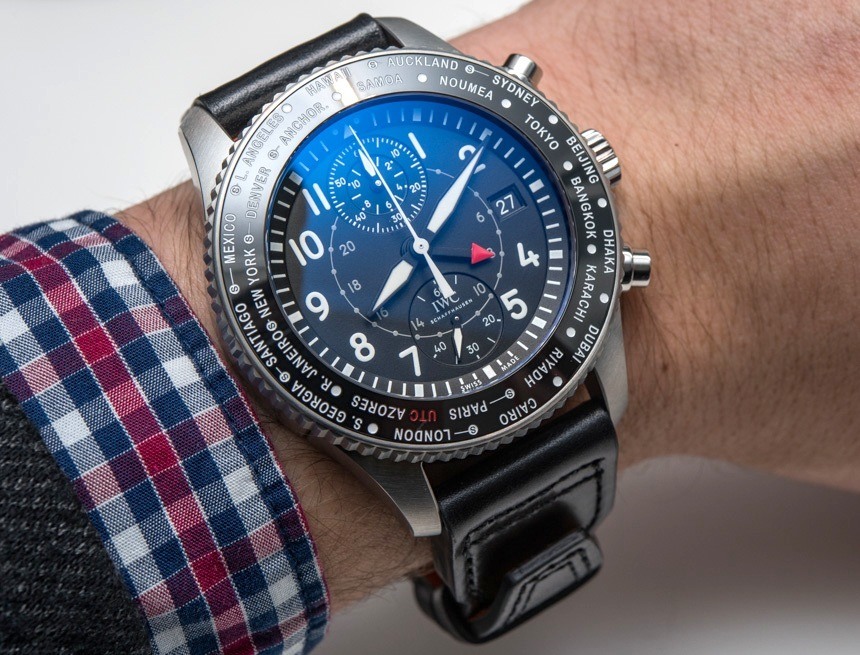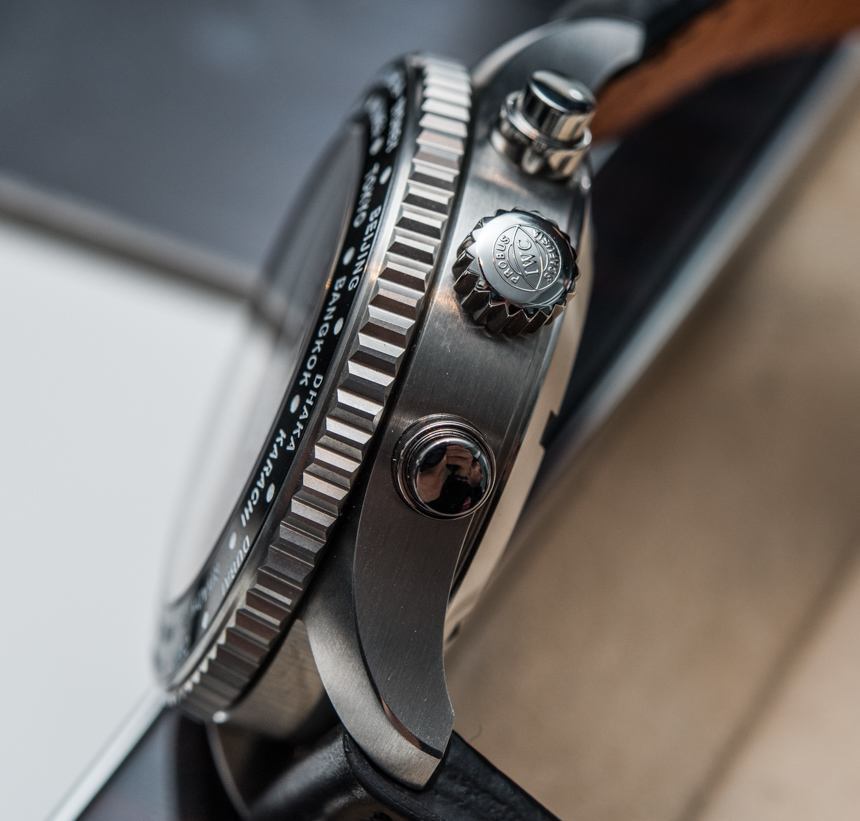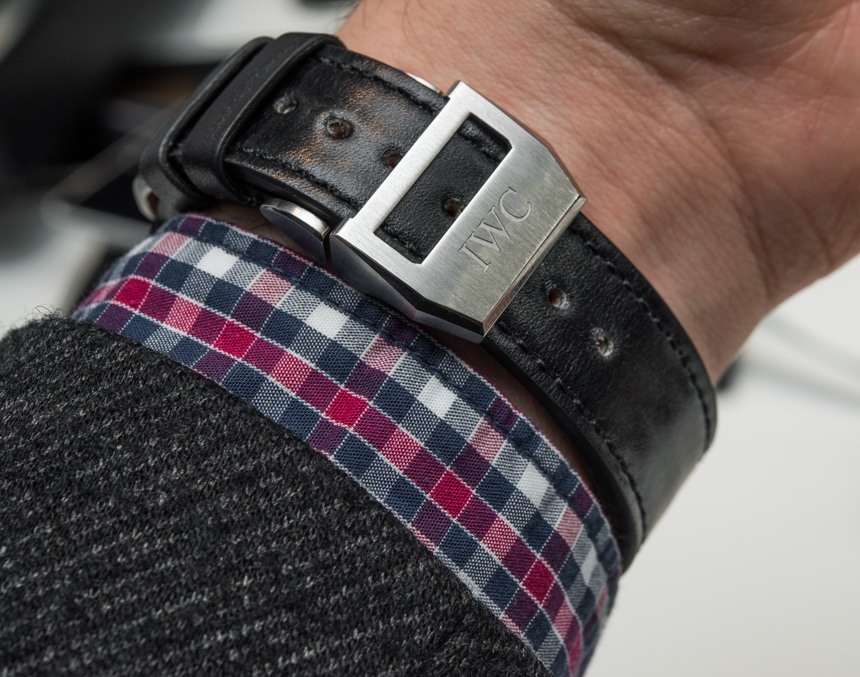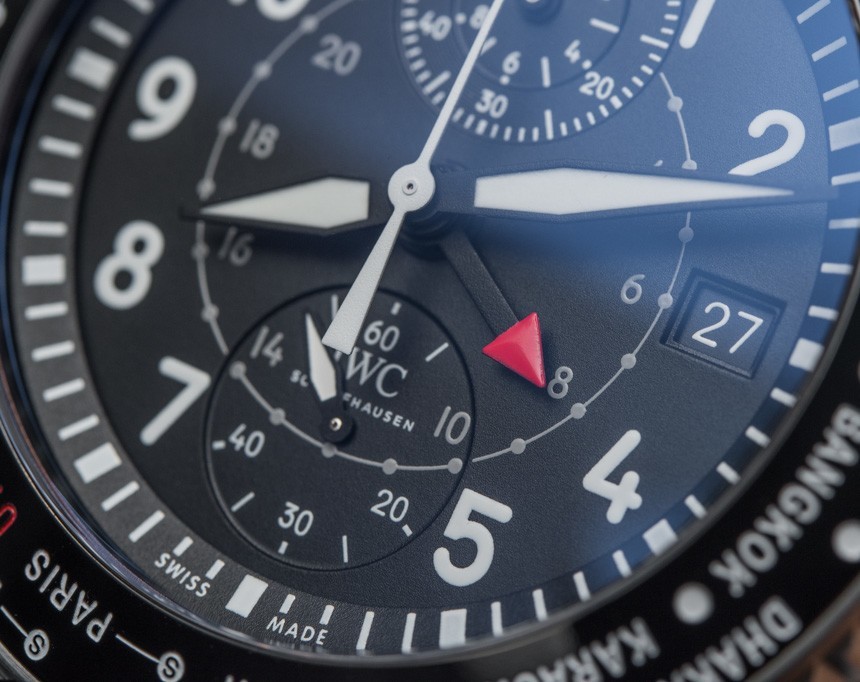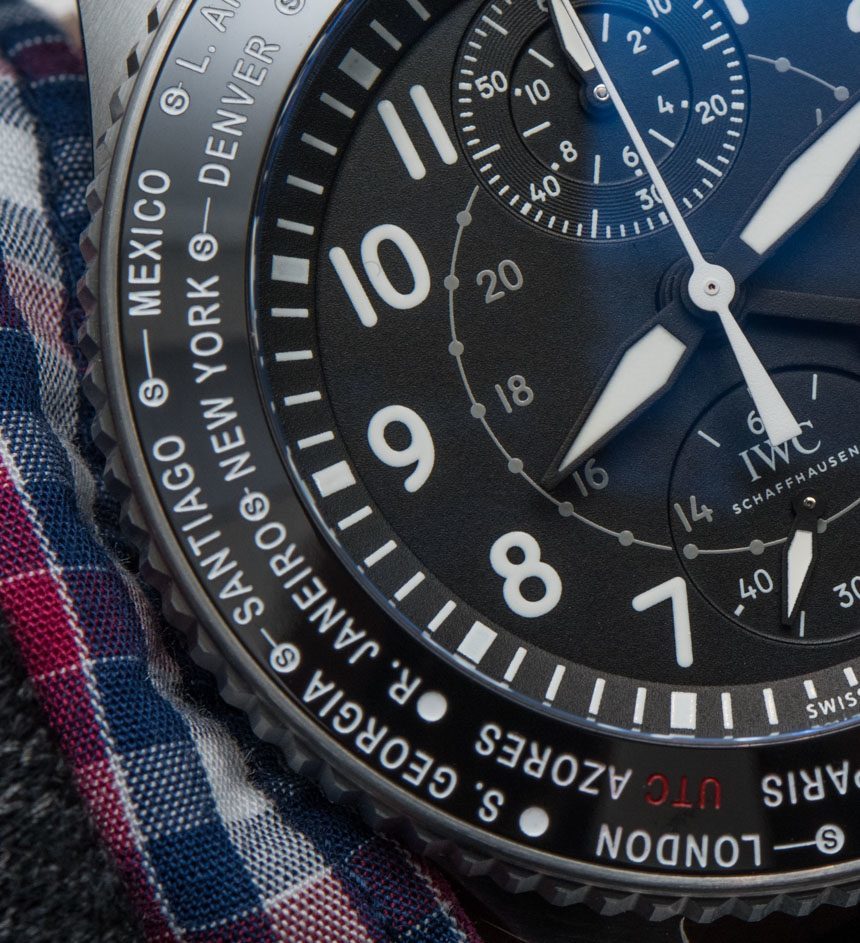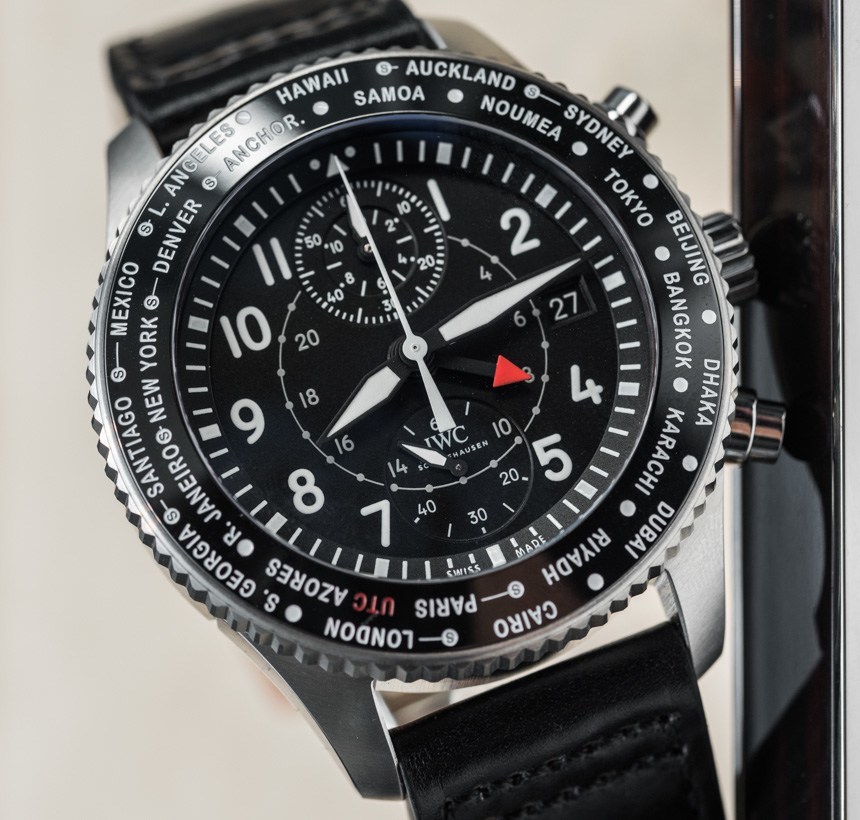
Perhaps no brand is better known for their pilots’ watches than IWC. When establishing a brand as the king of a segment, one must provide frequent displays of power to assert dominance over subjects and challengers alike. Among a largely refreshed pilot lineup for SIHH 2016, we find a welcome and very cool spin on IWC’s Pilot’s Worldtimer, the IWC Pilot’s Timezoner Chronograph (debuted here) that we got to see hands-on. Using a unique in-house movement with a connected bezel system, you can set and update the local time and its 24-hour display by turning the bezel. This is a rather entertaining, useful, and approachable feature on a watch designed to simplify the jump from one timezone to another.
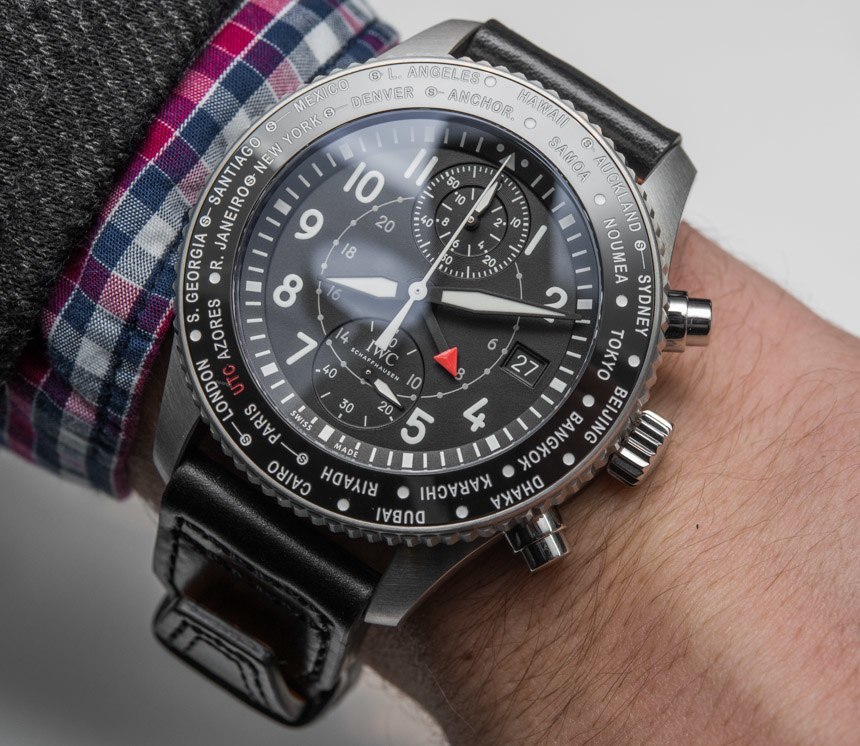
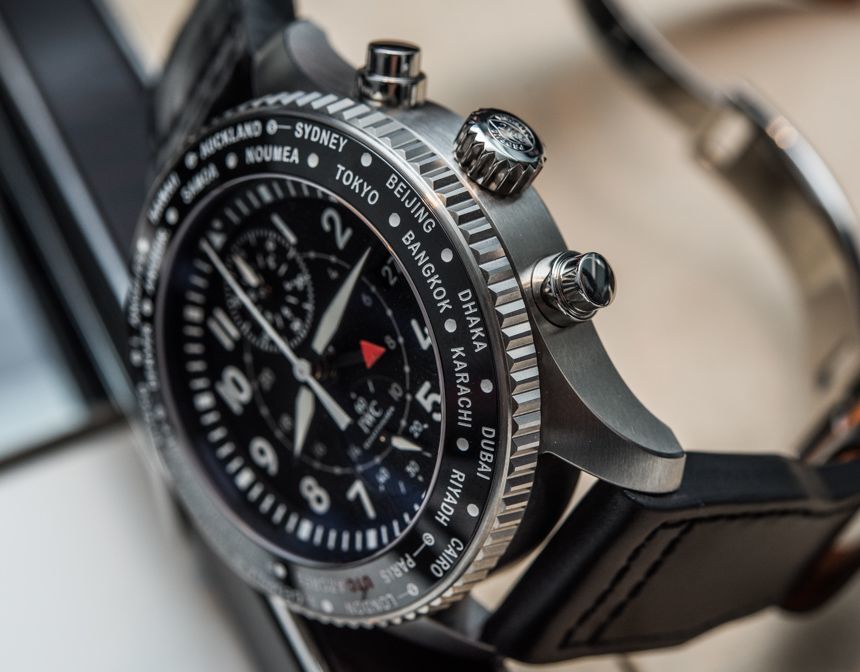
Carrying the reference 3905, this automatic chronograph is 45mm wide with a steel case which, including the bezel, is some 16.5mm thick. With a solid caseback and an anti-reflective sapphire crystal (that is specially secured against rapid pressure decreases), the IWC Pilot’s Timezoner Chronograph meets all of IWC’s requirements for a pilot’s watch and is water resistant to 60 meters.
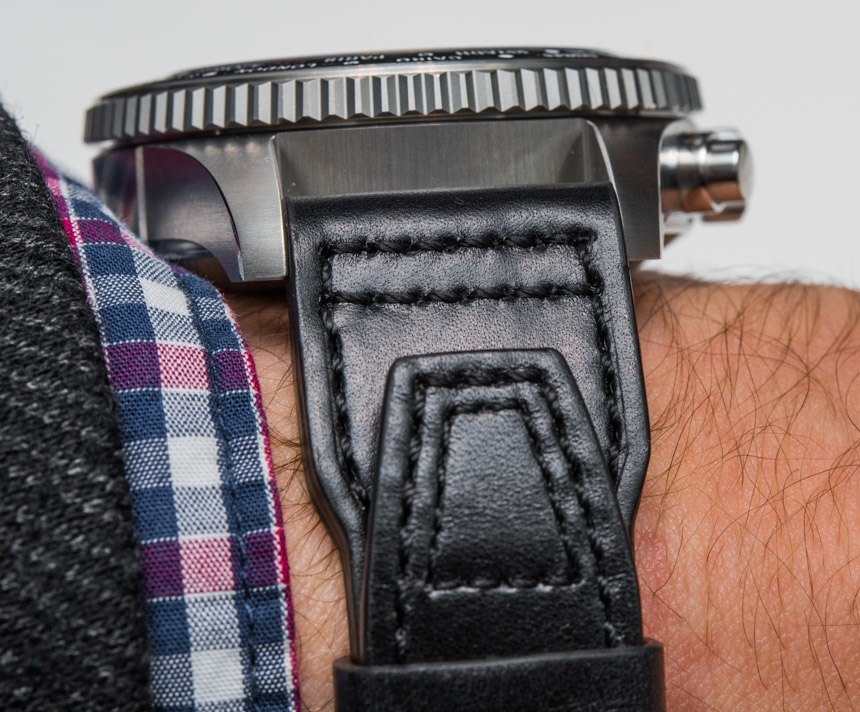
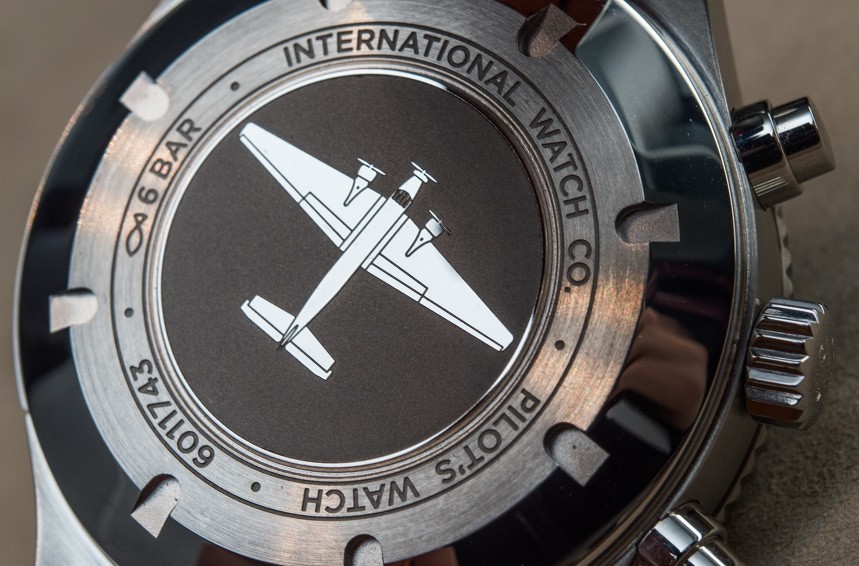
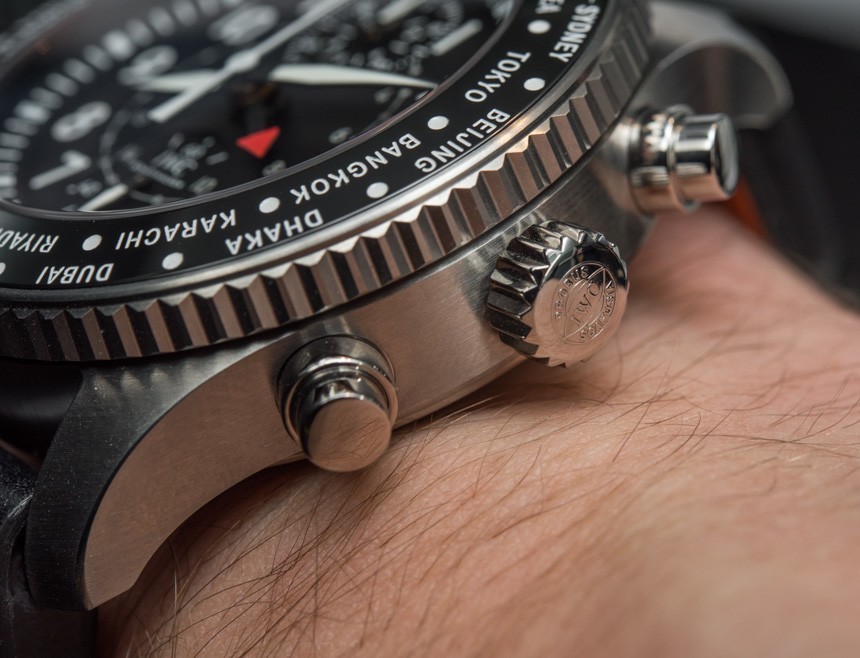
The IWC Pilot’s Timezoner Chronograph watch’s useful feature list is supported by IWC’s calibre 89760, a 4hz movement that offers 68 hours of power reserve, a date at three, hours (max: 12) and minutes recorded on the sub dial at twelve, and a jumping hour travel function. The IWC Pilot’s Timezoner Chronograph not only features a unique way of changing timezones, it also uses a somewhat strange worldtime/GMT display that links the local 12-hour hand with the 24-hour hand (the one with the red tip). So, unlike a Rolex GMT Master II, where the local hand and the GMT hand are independently set to track local and home time (respectively), the IWC Pilot’s Timezoner Chronograph watch’s additional hand is meant only to show 24-hour time (AM/PM) in the timezone selected by the bezel.
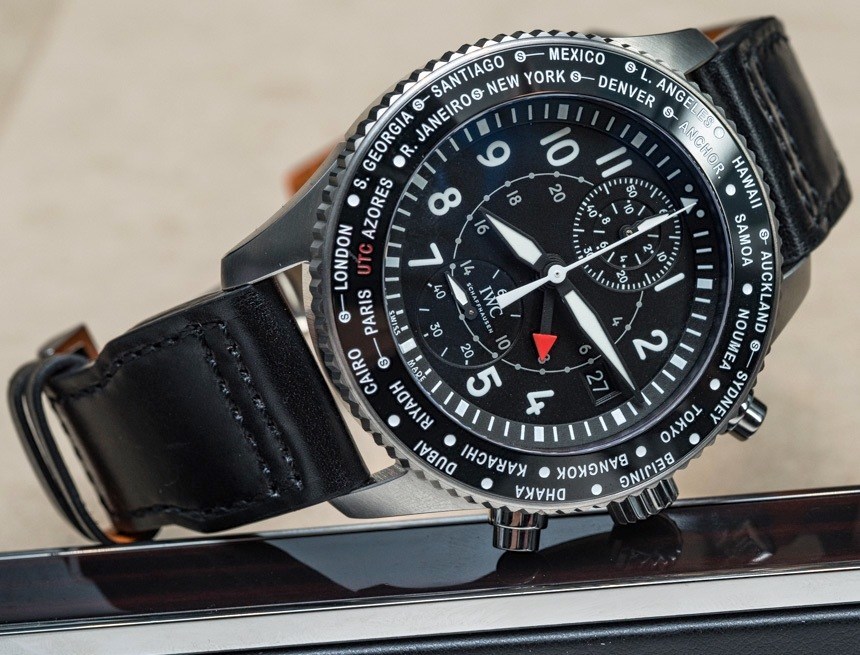
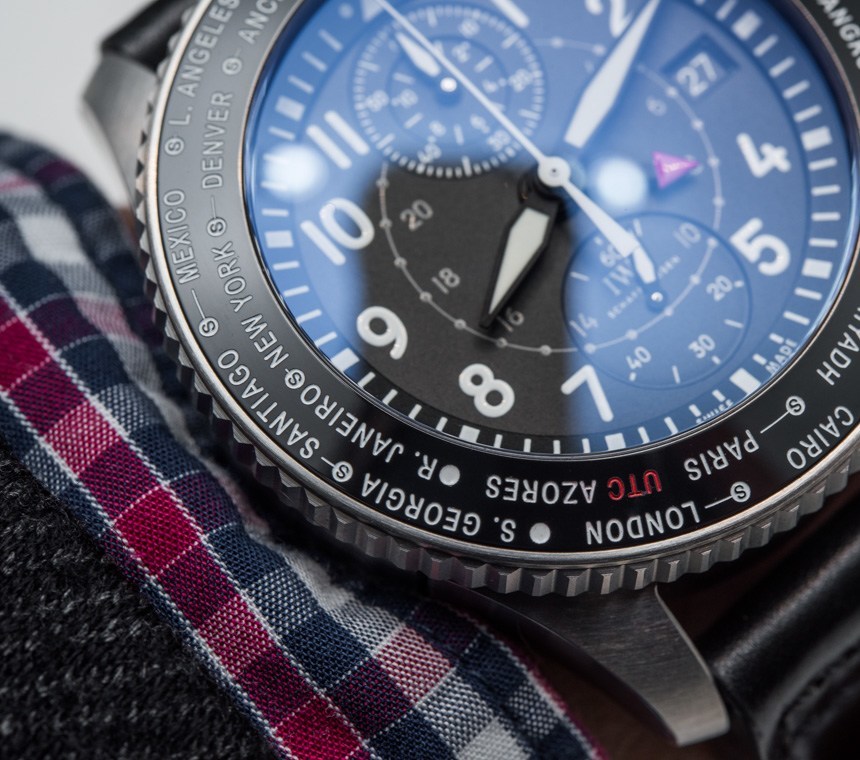
So how does it actually function? The sprung bezel is captive, so it has to be depressed before it will spin (like on an IWC 3536). Press the bezel down and turn it in either direction to set the local and 24-hour hands backwards or forwards. If you cross the date line, the date will advance or retreat accordingly. With the watch set correctly, you can simply turn the bezel until your new local city is at twelve and the time will be updated to suit the new locale. Cities with daylight saving time have a small “s” position that will enable a summer setting to ensure the correct time is shown. The entire process is done without affecting the movement’s accuracy or halting the progress of the seconds or minute hand.
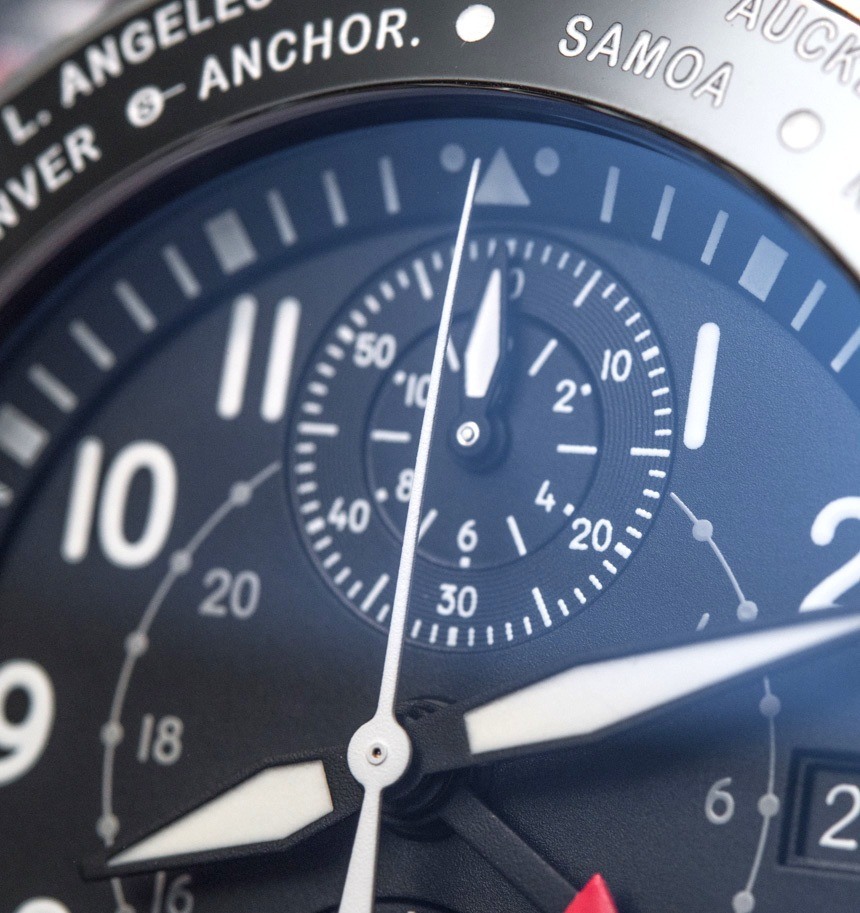
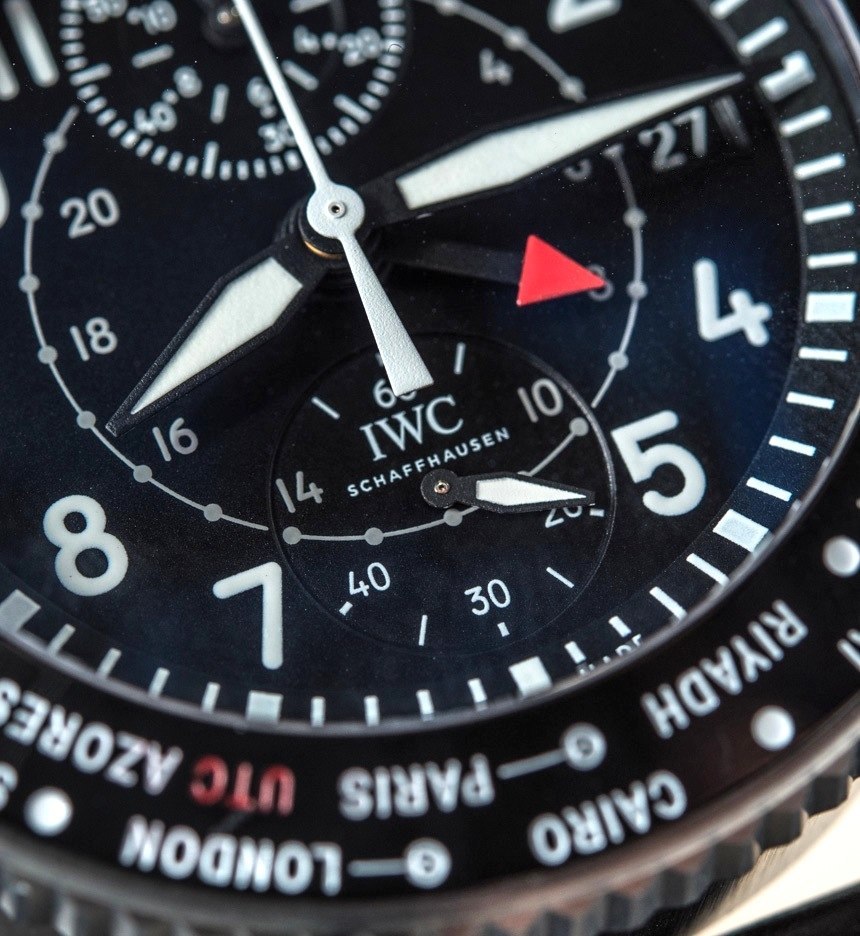
As the timezone change is so simple and so quick, the IWC Pilot’s Timezoner Chronograph manages to cover the spread between traditional crown-operated jump-hour GMTs (like the GMT Master II) and 24-hour independent hands that offer a view of a second timezone but no handy way of updating the current time to a new zone. Jump-hour GMT’s are great for travel, and 2nd timezone GMT’s are great for quickly checking the time in another timezone (when making an international call, for example) but the IWC Pilot’s Timezoner Chronograph can quickly show you both the local time and AM/PM in any timezone, and you don’t even have to do so much as touch the crown.
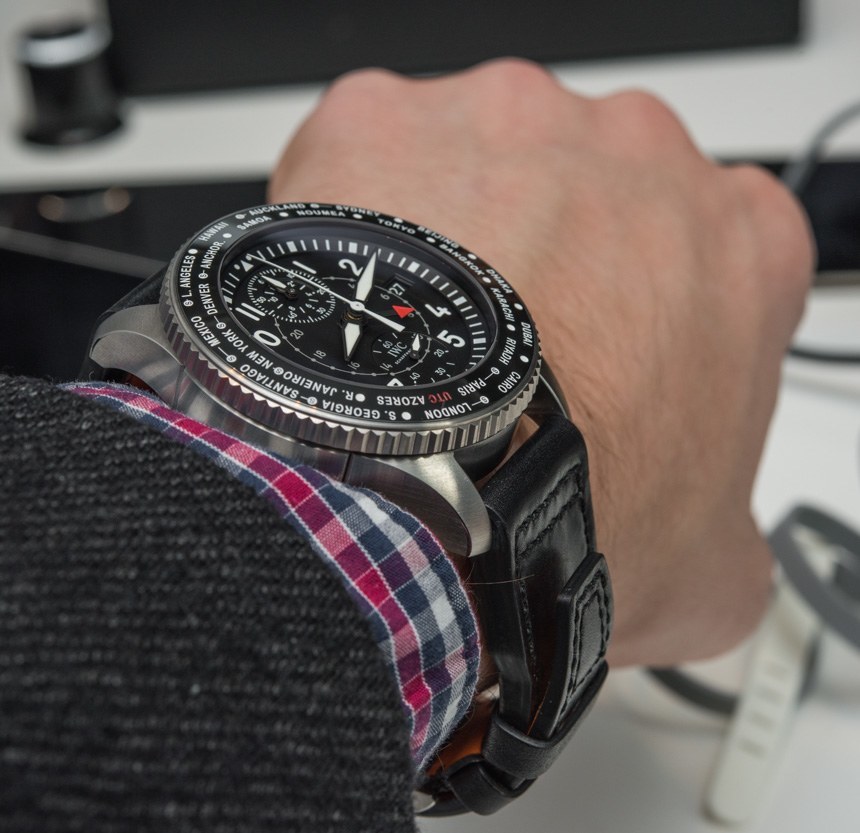
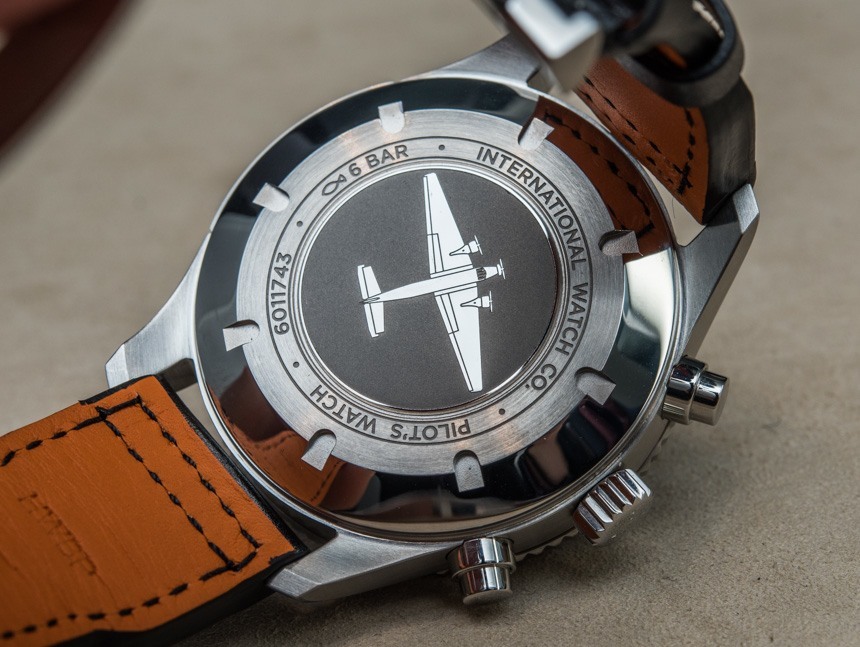

I am a huge fan of GMT watches, and the IWC Pilot’s Timezoner Chronograph is one of the coolest iterations I’ve ever come across. While it’s hard to beat the functionality of a GMT chronograph, the IWC Pilot’s Timezoner Chronograph’s impressive bezel design is a noteworthy and welcome step forward in terms of simplicity and ergonomics. With a complicated in-house movement and a unique interfaced bezel design, the IWC Pilot’s Timezoner Chronograph carries a list price of $11,900. iwc.com

